- Home
- Brian S. Wheeler
The Resonance of Sweet Mrs. Queen Page 3
The Resonance of Sweet Mrs. Queen Read online
Page 3
Chapter 3 – Catastrophes in the Public Library
Dressed in her best Sunday attire, Mrs. Queen hummed on the other side of the automatic, glass doors to the community library, where she volunteered her time to greet those who came to gaze upon the exhibit that filled the community room during that month. Enlarged, black and white photographs of the county’s historic disasters hung upon each the room’s four walls. Carefully selected by the head librarian, the exhibit reminded its visitors how the sky could deliver ruin, or how the ground could bring pain. Half of a wall brimmed with newspaper photographs showing how the earthquake of one hundred years past reduced downtown to brick rubble. Another wall crowded with Polaroid snapshots and cell phone pics of rampaging tornadoes. There were pictures of fields hardened and cracked by prolonged drought. Pages from an artist’s sketchbook conveyed how dark the sky had turned in a year’s devastating locust swarm. One carefully arranged spread archived the carnage following a gas explosion in an underground mine, and of the injured miners whose pained faces suffered what aid local doctors and nurses were then capable of administering.
And Mrs. Queen stood humming just before the archway leading into that room to greet those who came to consider such history.
Elise Watson, part-time library aid, frowned at the front desk. “We couldn’t find anyone other than Mrs. Queen to work as a greeter for the gallery exhibit?”
Julie Simonton, head librarian, shrugged. “She’s not working at all. Mrs. Queen is volunteering her time. We’re fortunate to find anyone at all to work for free.”
“I can appreciate that,” Elise replied, “but Mrs. Queen just stands there and hums. I haven’t heard Mrs. Queen say ‘hello’ all day, and I can’t concentrate on my work for all of her noise.”
“She’s doing her best. It’s probably good that Mrs. Queen gets out in public.”
Elise shook her head, “But to put Mrs. Queen in front of that gallery of such terrible pictures. We’ll be lucky if all her humming doesn’t lead to a massive meltdown.”
“There are only a couple more weeks left in that exhibit.”
“And have you seen the way Mrs. Queen reacts when anyone asks her a question?”
“She’ll do for now, Elise.”
Julie understood Elise’s concern. Mrs. Queen was indeed a very poor greeter. The woman could hardly find the confidence to smile towards the guests. She nearly crumbled each time a visitor asked any question about the photographs. Whose farm was in the background of that picture of the wildfire? What year did that snapshot of that lightning strike appear in the county paper? What month was it, exactly, when the twister ripped off the steeple to the church? Did she know what that old earthquake measured upon the Richter scale?
Julie didn’t expect her volunteers to research and learn such trivia. She truly valued the support received from her volunteers. But Mrs. Queen was awful. Mrs. Queen only timidly turned away whenever any guest asked her anything at all, and every inquiry increased the volume of her hum, so that its broken melody trickled into the reading room to disturb poor Chester Anderson, who wanted nothing more following his retirement than to enjoy a quiet space where he could immerse himself into the action of his crime novels.
Elise’s eyes tugged Julie’s attention towards the glass doors as a slim, elderly man with sun-darkened and sun-wrinkled skin stomped into the library’s air conditioning.
“It’s Shane Moultrie,” and Elise rolled her eyes. “That devil of a man isn’t going to show Mrs. Queen any mercy, especially if she just goes on humming if he asks her a question.”
“It’ll be fine,” but Julie was worried. “I’ll drift over there at the first sign of trouble.”
What remained of Shane Moultrie’s fine, silver hair perpetually stood upright upon his crown, as if that old farmer was a dynamo of electricity. He growled at nearly every step, as if thunder shook in the bowels of his flat belly. He had been a farmer for his entire life, and he had seldom stepped away from the eighty plus acres his ancestors passed down to him. Shane’s view of the world little expanded beyond his rows of bean and corn, and he still resented the cost for every library, school and road that knitted together his local town, for a farmer such as Shane Moultrie believed their taxes alone built such inefficient wastes of government. He believed the land only held space for the strong, and that it was best to let the weak starve.
“I’m here for the disaster pictures,” Shane grumbled at Mrs. Queen.
Mrs. Queen meekly nodded towards the archway into the community room, and the volume of her hum increased another notch before Shane’s scowl.
Julie held her breath as she watched the encounter from the library’s front desk. But Shane Moultrie didn’t appear to take any offense at Mrs. Queen’s bashfulness as he stomped into the gallery, leaving behind the mud of his work boots with every step. Though Julie would in any other case hoped her volunteers would kindly ask guests to remove such muddy footwear, the librarian appreciated how Mrs. Queen gave no indication at all of noticing the mess created by Shane’s footsteps. A little carpet cleaning was a much better alternative to facing Shane Moultrie’s ire.
“I’ll be damned,” Shane rumbled to a section of the gallery relating seasons of drought, and there his eyes focused on a small photograph in shades of sepia. “I didn’t believe it when my niece told me, but there’s my folks’ old barn in the background. And there’s my old horse. God, how I loved that animal as a boy.”
Mrs. Queen couldn’t look very long at the photograph that Shane’s shaking hands removed from the wall. A starved horse, so emaciated that one could count the ribs running down the creature’s flanks, stared from the center of that photograph. The horse’s skin looked wrinkled like paper, often broken by the shadows of sores. Insects hovered about the eyes and ears, no doubt helping themselves to whatever energy that tired horse struggled to maintain. Its knees looked swollen for the lack of muscle surrounding them, and the dark eyes held by the underlining skull looked glazed and dead. The photograph in Shane’s hand had been one of the smallest pictures mounted in the gallery, but Mrs. Queen regarded it as one no less moving than any of the others. Peeking at that poor horse made her feel nauseous with pity, made that old trembling start again in her knees, made her hum shudder.
Shane sighed. “That animal had been so strong and proud only two seasons before the drought. Dad used to still tie him to the plow to give that horse a little exercise, more importantly, to give that horse a little purpose, even though it was so much easier and quicker to get it all down with the tractor. The real tragedy is that I don’t have a picture showing how strong that poor creature had been. It’s not right. It’s not fair that my old horse gets hung up on this wall along with all the rest of this ruin. There’s something shameful in it. Do you understand what I mean?”
Shane was looking at Mrs. Queen, waiting for a reply. Perhaps, he hoped Mrs. Queen would say something to contradict him. Perhaps, he expected Mrs. Queen to defend whatever reason the library might have to mount the picture of a creature’s terrible time.
No matter what Shane Moultrie expected, Mrs. Queen remained silent, offering only her hum to express any feeling at all.
“We slaughtered everything else that dry season,” Shane continued with a whisper. “The hogs. The chickens. The cows. Everything. We were hungry and thirsty. No crops breaking up from the dust. No money to carry to the store. So we killed everything to survive. But my old man couldn’t butcher what remained of that horse. I used to go out all morning to the animal, hoping it would’ve fallen dead during the night. But it just kept standing for so long, even when most of it was gone. But my old man wouldn’t kill it. He said we’d be monsters if we killed that creature, seeing all that horse did for us. So we just let that poor animal wither into a shade. It was so dusty and dry, and so when we finally did bury the horse, we couldn’t scrape a deep enough hole, or find enough dirt, to hide where we placed the bones.”
Mrs. Queen hummed. She never interjecte
d to express pity. She never protested when Shane’s dirty fingers mangled the photograph. She never expressed any sentiment at all. She only hummed.
“I came to this library to make you all take that picture down,” Shane growled. “I didn’t want to let none of you shame that horse. That horse deserved better. But I’m not sure now. I’m thinking that I should keep this photograph up on the wall with the rest of them. Force people to admit bad things happen. Make people understand they just can’t sweep the ugly beneath their expensive carpets. Everyone tries to just forget, or ignore it all. I think I want this picture up on the wall to make everyone remember.”
Mrs. Queen continued to hum as Shane paced slowly around the gallery, peering closely at the photographed bodies recovered in the gas explosion at the county mine, bending closer to the black and white police photograph of the airplane wrecked outside of town.
The man drifted back to Mrs. Queen upon completing his circuit. “I wasn’t looking forward to coming by to see these pictures, but I’m glad I did.”
With that, Shane Moultrie quietly stepped through the library’s polished, double doors to return to the challenges his acres reserved for him. The old farmer had not raised his voice, nor had he shouted any demands at the library’s support staff. He had not even growled the slightest indignation upon thinking that his tax dollars were spent in the support of an idle building filled with idle books. Mrs. Queen’s humming had tamed that man’s storm.
Mrs. Queen’s hum, however, was louder than it had been before Shane Moultrie entered that gallery, and it’s fragmented song disturbed Chester Anderson as he worked his way through another chapter. Mrs. Queen’s hum would show no sign of weakening an hour later, and Julie requested that Mrs. Queen depart early from her shift, so that the volunteer could take the time to recollect herself before returning next week for another shift.
Mrs. Queen kept her home dark when she returned from duty. Any job taxed her nerves. She needed peace. So she did not turn on the television, lest some breaking news of another war, of another bomb, interrupt her cooking channel with more tales of terror. She unplugged her emergency, weather radio, no matter that the clouds looked to be darkening on the other side of her window. Nor did Mrs. Queen answer the phone when her neighbor Lacy called to share more of her melancholy.
Swaying in her rocking chair, Mrs. Queen listened to herself hum. She was ashamed. The hum seemed in possession of her. She felt powerless before the noise. But Mrs. Queen fought against that hum into the night, determined not to go to bed until she found the resolve to force that hum to quiet.
* * * * *

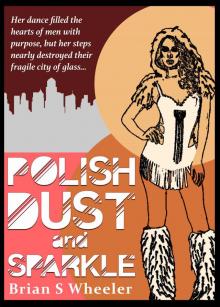 Polish, Dust and Sparkle
Polish, Dust and Sparkle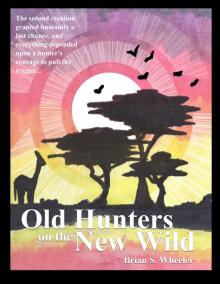 Old Hunters on the New Wild
Old Hunters on the New Wild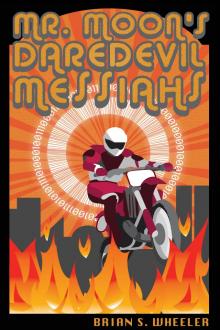 Mr. Moon's Daredevil Messiahs
Mr. Moon's Daredevil Messiahs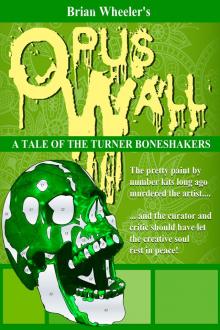 Opus Wall
Opus Wall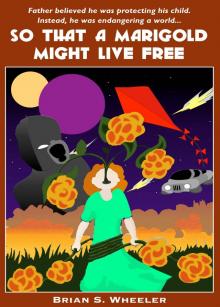 So That a Marigold Might Live Free
So That a Marigold Might Live Free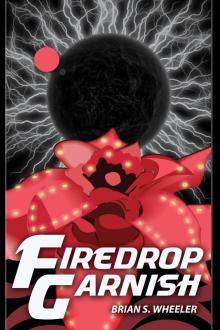 Firedrop Garnish
Firedrop Garnish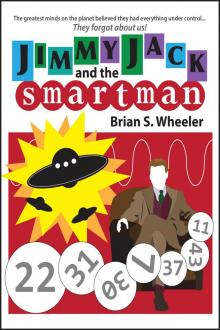 Jimmy Jack and the Smartman
Jimmy Jack and the Smartman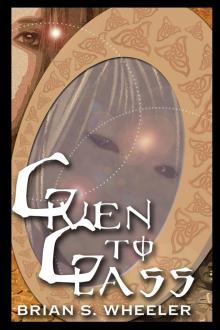 Given to Glass
Given to Glass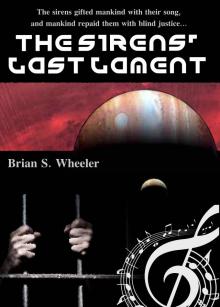 The Sirens' Last Lament
The Sirens' Last Lament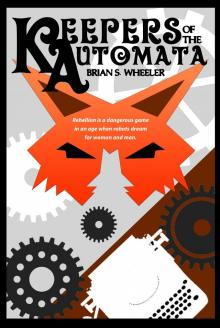 Keepers of the Automata
Keepers of the Automata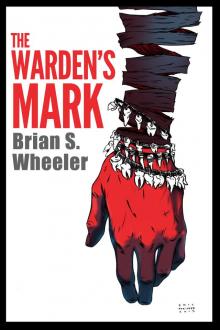 The Warden's Mark
The Warden's Mark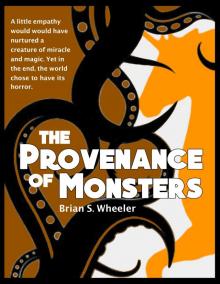 The Provenance of Monsters
The Provenance of Monsters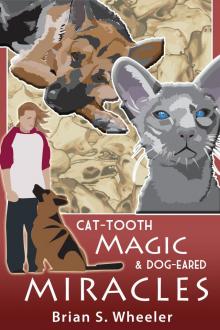 Cat-Tooth Magic and Dog-Eared Miracles
Cat-Tooth Magic and Dog-Eared Miracles Heritage and Shimmer
Heritage and Shimmer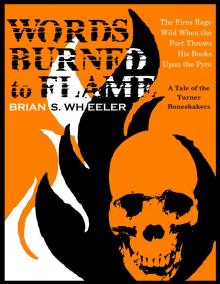 Words Burned to Flame
Words Burned to Flame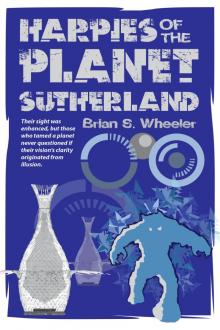 Harpies of Planet Sutherland
Harpies of Planet Sutherland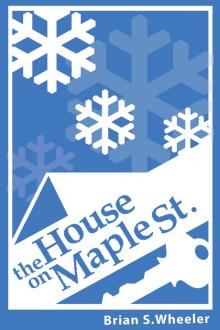 The House on Maple Street
The House on Maple Street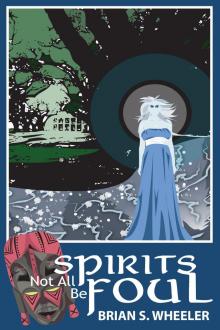 Not All Spirits Be Foul
Not All Spirits Be Foul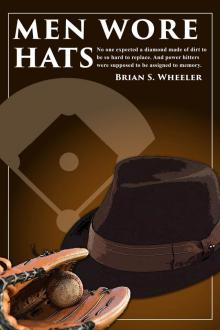 Men Wore Hats
Men Wore Hats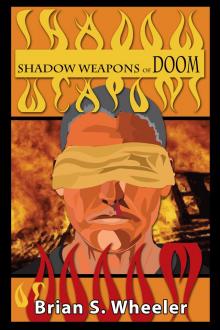 Shadow Weapons of Doom
Shadow Weapons of Doom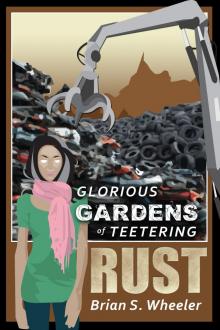 Glorious Gardens of Teetering Rust
Glorious Gardens of Teetering Rust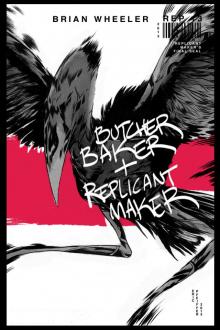 Butcher, Baker and Replicant Maker
Butcher, Baker and Replicant Maker Patriots of Griffin XIII
Patriots of Griffin XIII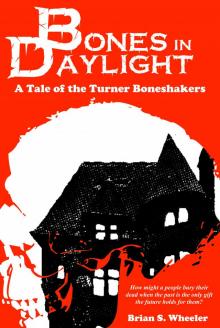 Bones in Daylight
Bones in Daylight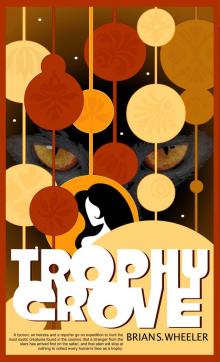 Trophy Grove
Trophy Grove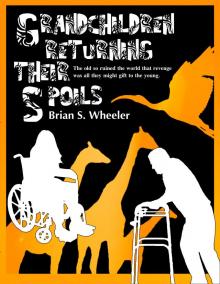 Grandchildren Returning Their Spoils
Grandchildren Returning Their Spoils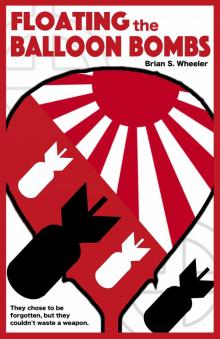 Floating the Balloon Bombs
Floating the Balloon Bombs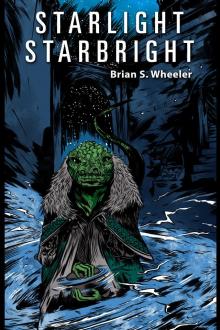 Starlight, Starbright
Starlight, Starbright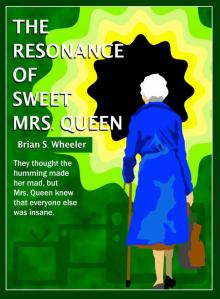 The Resonance of Sweet Mrs. Queen
The Resonance of Sweet Mrs. Queen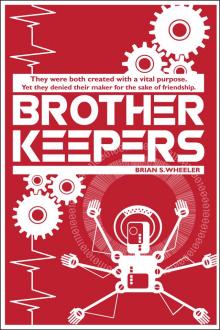 Brother Keepers
Brother Keepers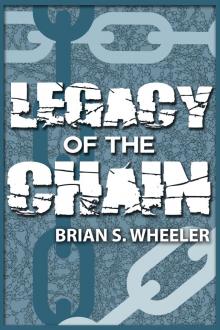 Legacy of the Chain
Legacy of the Chain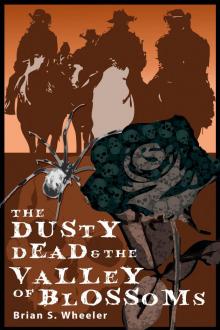 The Dusty Dead in the Valley of the Blossoms
The Dusty Dead in the Valley of the Blossoms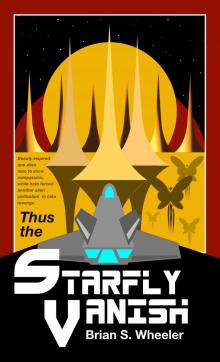 Thus the Starfly Vanish
Thus the Starfly Vanish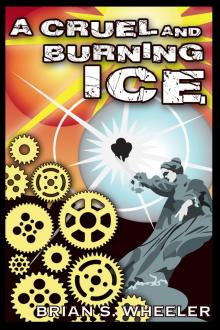 A Cruel and Burning Ice
A Cruel and Burning Ice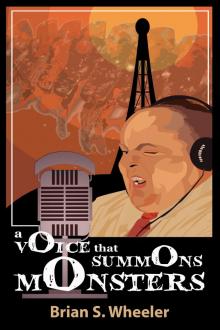 A Voice That Summons Monsters
A Voice That Summons Monsters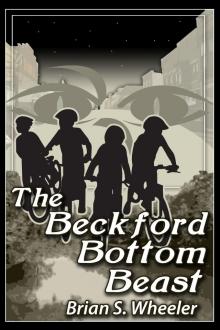 The Beckford Bottom Beast
The Beckford Bottom Beast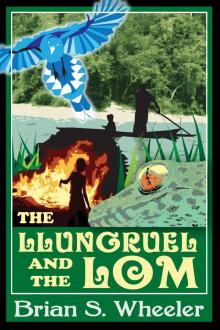 The Llungruel and the Lom
The Llungruel and the Lom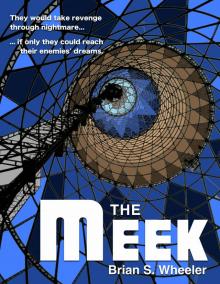 The Meek
The Meek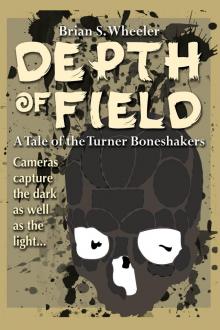 Depth of Field
Depth of Field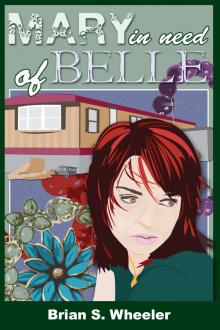 Mary, in Need of Belle
Mary, in Need of Belle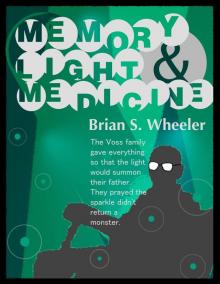 Memory, Light & Medicine
Memory, Light & Medicine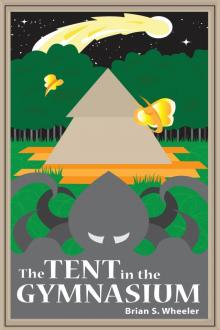 The Tent in the Gymnasium
The Tent in the Gymnasium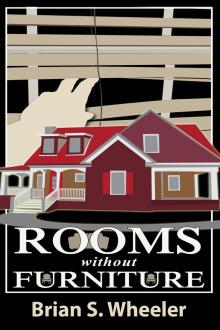 Rooms Without Furniture
Rooms Without Furniture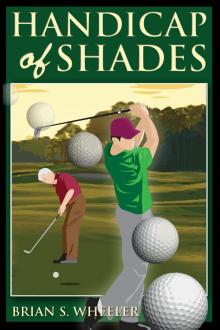 A Handicap of Shades
A Handicap of Shades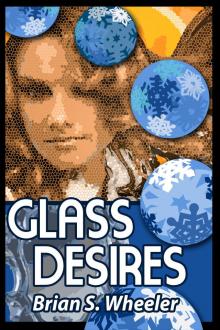 Glass Desires
Glass Desires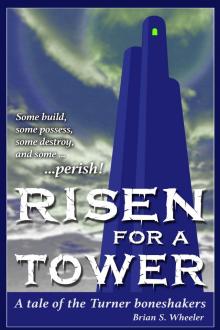 Risen for a Tower
Risen for a Tower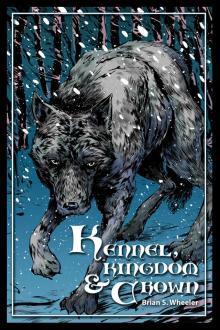 Kennel, Kingdom and Crown
Kennel, Kingdom and Crown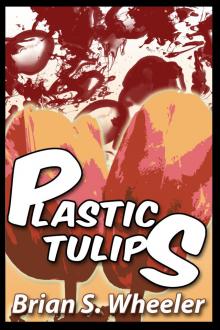 Plastic Tulips
Plastic Tulips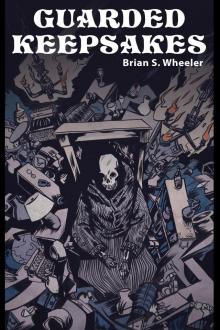 Guarded Keepsakes
Guarded Keepsakes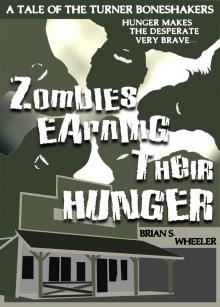 Zombies Earning Their Hunger
Zombies Earning Their Hunger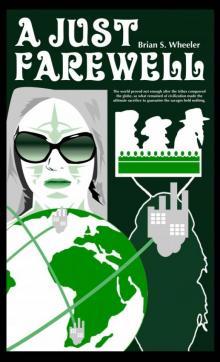 A Just Farewell
A Just Farewell